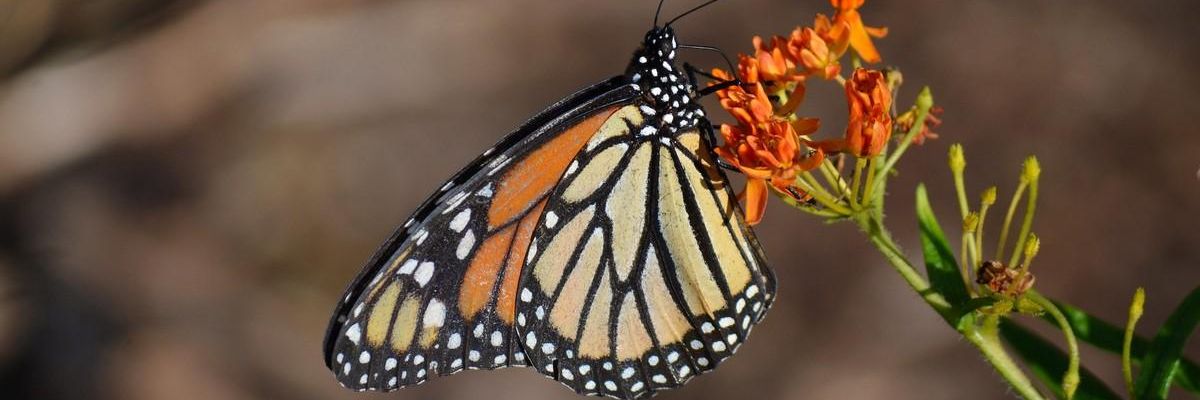As the United Nations Biodiversity Conference wrapped up Friday, critics are once again pointing to the glaring absence of the United States from negotiations to strengthen an international treaty to restore and protect the variety of life on Earth that has been ratified by every country except the U.S.
"The world cannot afford for China and the U.S. to not find ways to work together to address climate change and nature loss."
The U.S. did send a team to this week's meeting, which was hosted by China and attended in-person and virtually because of the ongoing coronavirus pandemic--a crisis that has highlighted the need to reform humanity's relationship with nature.
U.S. delegates, however, had no official say and could only observe, as diplomats from around the globe debated how best to update the Convention on Biological Diversity (CBD) and hashed out strategies to safeguard the world's flora, fauna, and ecosystems, which are increasingly under threat due to the relentless quest to maximize profits at all costs.
The resulting "Kunming Declaration"--a pledge that was welcomed by conservation advocates, who also emphasized the urgent need to match words with bold and concrete policies--sets the stage for the development of a post-2020 global biodiversity framework, which governments are scheduled to negotiate further in January 2022 and adopt next May at part two of the U.N. Biodiversity Conference.
Related Content
Nature Defenders Warn Global Biodiversity 'Kunming Declaration' Lacks Urgency
Jessica Corbett
"Washington's obstinance is striking," Sara Schonhardt wrote Friday in E&E News. "It is not without consequence either. Because the United States has refused to ratify the Convention on Biological Diversity, it cannot vote on procedures that continue to shape the treaty. And critics say the lack of participation in this arena hurts U.S. diplomacy in other environmental matters, such as global warming."
Stewart Patrick, a senior fellow in global governance at the Council on Foreign Relations, told Schonhardt that "it reinforces the notion that the U.S. is a fair-weather partner when it comes to environmental conservation, including issues of climate change."
According toE&E News:
Nearly all the blame lies with the U.S. Senate, which for years has balked at approving the treaty. But the Biden administration hasn't spent much political capital on it either--in a year that officials often describe as pivotal for the climate.
For decades, Republican lawmakers have argued against ratification because they say it would require that the United States bring its laws and regulations into conformity with global standards and infringe upon U.S. sovereignty. In addition, American industry groups have raised concerns that entry into the deal would pose a risk to intellectual property rights.
Patrick rejected both of those talking points. The CBD "doesn't oblige the U.S. to do anything it's not already doing," he said, adding that U.S. environmental laws are relatively strong compared with the rest of the world.
The U.S. Senate's refusal to ratify the CBD--sometimes referred to as the Paris agreement for nature--is "embarrassing," Tierra Curry, a conservation biologist at the Center for Biological Diversity, toldThe American Prospect's Lee Harris.
Harris wrote Friday that "the continued snub dates back to lobbying by the biopharmaceutical industry, which objected to intellectual property provisions and wanted to maintain its ability to extract natural resources from developing countries."
As The Prospect reported:
Habitat destruction threatens more than the extinction of the charismatic megafauna--panda bears, rhinos, elephants, and other cuddly animals that are most popular stuffed. It is also a key contributor to the emergence of infectious diseases, bringing people and livestock in contact with wildlife.
Around the world, humans continue to expand the wildland-urban interface. In the past year, that encroachment set off record-breaking fires across mismanaged land in California and Covid-19, as farming and resource extraction give pathogens opportunities to spread to human hosts.
Following a year when conspicuous examples of the perils of biodiversity loss came from the world's top two polluters, however, only China is leading rhetorically on responsible land management.
COP 26, the U.N. climate change conference that starts in just over two weeks in Glasgow, has received far more attention--including from the U.S., which rejoined the Paris agreement in February.
Harris, however, noted that biodiversity loss "is arguably an even more complex and intractable problem" than the climate emergency.
Although the global extinction crisis is driven in part by rising temperatures caused by greenhouse gas pollution, it will take more than slashing fossil fuel emissions to restore vital ecosystems, revive pollinators whose populations are declining, prevent the further collapse of freshwater mussels that play a key role in keeping waterways clean, and protect the Amazon rainforest--"the lungs of the world" recently transformed from a carbon sink into a net emitter.
The Biden administration, for its part, "has endorsed a proposal to protect 30% of national lands and waters by 2030," E&E noted. The so-called 30x30 goal "is expected to be a centerpiece" of the new CBD, though such a one-size-fits-all approach has been criticized by some ecologists.
Brian O'Donnell, director of the Campaign for Nature, told the news outlet that "the world cannot afford for China and the U.S. to not find ways to work together to address climate change and nature loss."
"Our survival requires it," he stressed.


